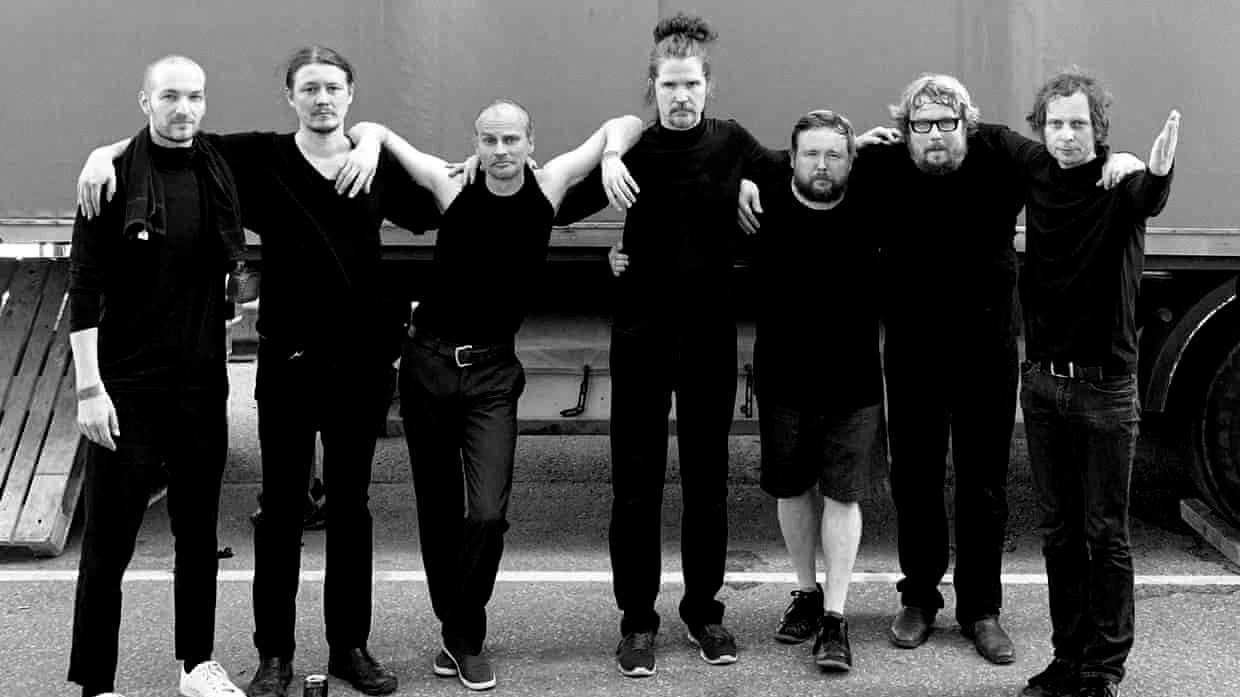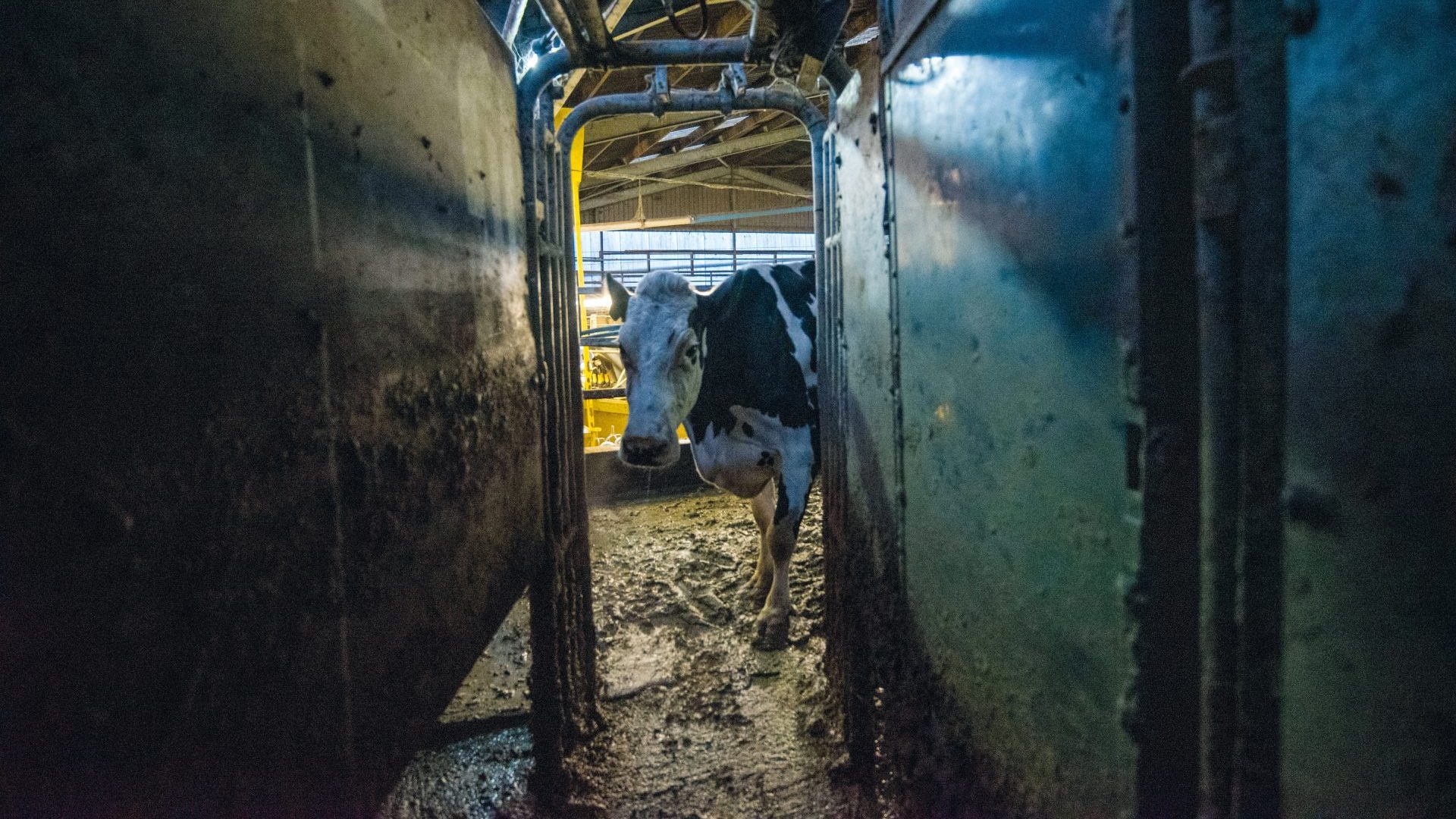What happens when one of the most original voices in British music gets together with Finland’s premier experimental rock band? A “flora-themed hypno-folk-metal record”, of course. Henki, Finnish for spirit, is a collaboration between avant-folk musician Richard Dawson and his long-time heroes Circle.
Each of the album’s seven tracks takes a plant as its theme, narrating its history and name-dropping famed botanists, against a musical background, which bears the marks of Circle’s classic heavy metal influences – they have referred to themselves, tongue-in-cheek, as pioneers of the New Wave Of Finnish heavy metal – as well as their krautrock and ambient inspirations. But as Dawson’s meandering vocals lay a slightly queasy folky sense over everything, these songs become ethereal.
From the coastal city of Pori, Circle celebrate three decades as a band this year. They earned a reputation early on for wild shows, where they might appear wearing only head-to-toe body paint or skin-tight, shiny spandex, and their off-the-wall on-stage visuals were a fair reflection of their music. Debut LP Meronia (1994), for example, found them singing in a made-up language. Between 1999 and 2001, the albums Andexelt, Prospekt and Taantumus drew acclaim from beyond the borders of Finland, with their mix of influences making for a sound that was beyond original.
Since then, Circle have become ever more genre-defying. Having released more than 30 albums in 30 years, their huge back catalogue is difficult to summarise, although comparisons have often been drawn to both the experimentalism of original krautrockers Faust and the old-school metal operatics of Judas Priest.
The extent of Circle’s avant-garde ambition and anti-commercialism was made clear in 2013 when they swapped names with Finnish metal band Falcon for a year, becoming known as Falcon (ex-Circle) and afterwards as Circle (ex-Falcon).
In Dawson, Circle have met their match. An unassuming-looking Geordie playing discordant folk-blues on a battered guitar and singing in a voice that seems both completely uncontrived (the accent is there in spades) and otherworldly in its extreme low and high reaches, he utterly defies categorisation.
His lyrics, which often narrate humdrum real-life experiences but with Chaucerian pungency, have earned him particular acclaim. After 2011’s The Magic Bridge LP and The Glass Trunk (2013), with its macabre stories inspired by material held in the Tyne and Wear Archives, 2014’s Nothing Important was a startling statement of originality.
While chaotic opener, Judas Iscariot, sounded like a Mississippi bluesman playing a folk horror soundtrack on broken strings, the two slower-paced 16-minute tracks that made up the meat of the album were based on Dawson’s childhood reminiscences which, although punctuated with references to FW Woolworth, Asda and St John Ambulance, focused uneasily on death and peril.
Dawson’s ability to match Circle’s leap from anything recognisable elsewhere in the music industry is clear in the lines from Nothing Important’s The Vile Stuff: “My neighbour Andrew lost two fingers to a staffie-cross/Whilst jogging over Cow Hill with a Peperami in his bum-bag.” The shared concept of the following albums, Peasant (2017) and 2020 (2019) – the former set in the middle of the 1st millennium AD, the latter in an accurately dystopian
modern Britain – both found Dawson singing each song from the perspective of a different narrator, making his inventiveness clear.
Henki is every bit as esoteric as its contributors’ back catalogues might suggest, and the lyrics often feel like a botany class. Dynamic second single, Methuselah, for example, references both the nearly 5,000-year-old bristlecone pine of the same name, found in the White Mountains of
California, and the felling of Prometheus, a tree of the same species and even greater age, by geography professor Donald Currey in 1964.
Dawson’s characteristic literalness is found in the staccato opening lines: “Starting in the climate of the Little Ice Age/Under the promotion of the National Science Foundation/Donald Currey comes to believe the pines of the White Mountains/Are older than previously thought.”
But as odd as the themes of Henki seem, their relevance amid the climate crisis is clear, and the listener’s sense that Dawson would have been a perfect medieval troubadour, taking tales of plague, pestilence and famine from village to village, adds an apocalyptic veneer to the record.
This is music with a rich historical hinterland to lose yourself in, but which speaks to the urgency of the future.
Dawson and Cirle in five songs
Ogre (2017)
From Dawson’s critically acclaimed avant-folk album Peasant, set in the age of the Anglo-Saxons, this is an unnervingly atavistic incantation.
Jogging (2019)
One of Dawson’s chronicles of modern British life, the deceptively upbeat track opens: “Recently I’ve been struggling with anxiety/ To the point I find it hard to leave the flat/ The days drain away, scouring eBay/ Or looking on Zoopla at houses where I’ll never live.”
Circle, Meronia (1994)
This gothic odyssey of a title track from the Finnish band’s debut album, which used the nonsense language of their own invention “Meronian”, is shot through with the heavy riffs of metal, the electronic influence of krautrock and the atmospherics of ambient music.
Cooksonia (2021)
Henki’s opener is sung from the perspective of Australian botanist Isabel Cookson, for whom the fossil plant genus of the title was named after she
discovered it in a Herefordshire quarry in 1937.
Lily (2021)
The rock opera-worthy lead single from Henki narrates the supernatural experiences of Dawson’s mother when working as a junior nurse at Newcastle’s Royal Victoria Infirmary in the 1980s.
Now listen to the music:




